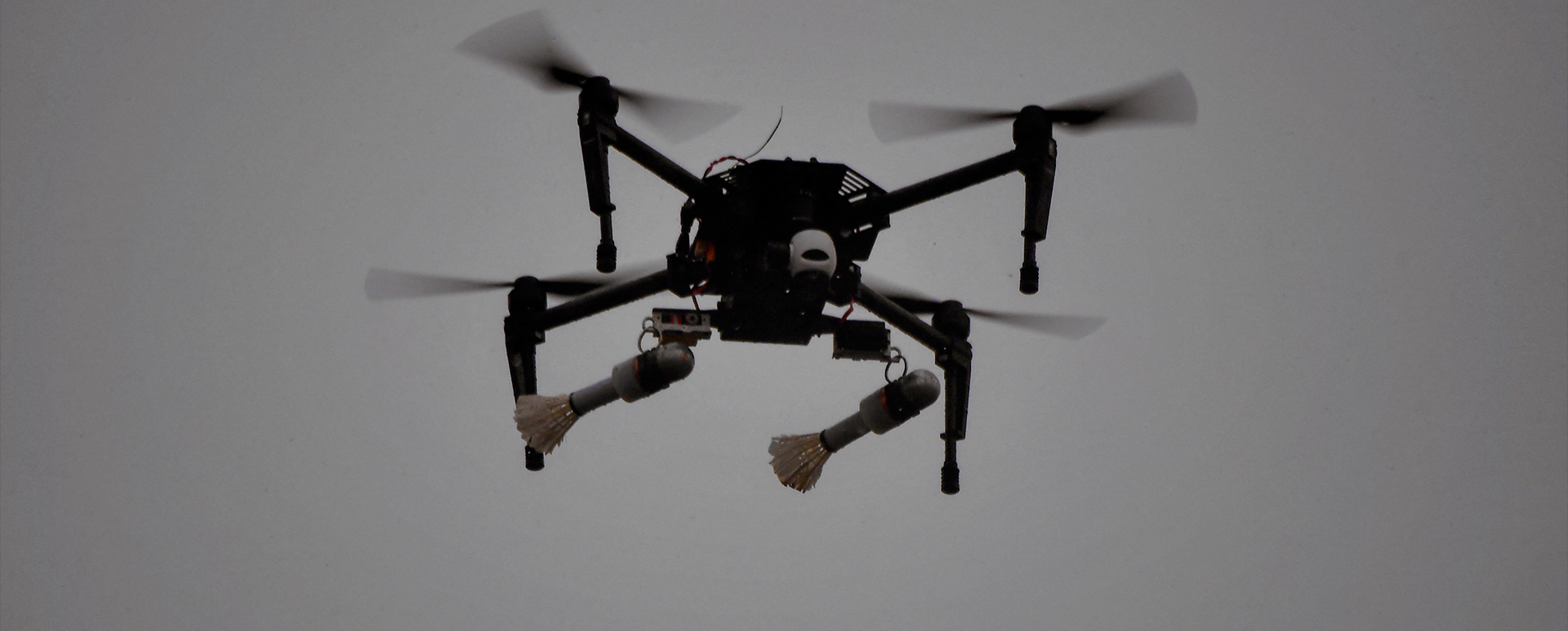In the ancient Sumerian believes, the people from Mesopotamia learned to fear the wrath of Anu, god of the heavens. In modern Iraq, this ancient angst has now been replaced by a new source of dread: the fire brought down from drone strikes.
In the new report, titled ‘Between Terror Strikes and Targeted Killings’, PAX explores the evolvement of drone warfare in Iraq over the last decade, providing an inventory of drone use by multiple state and non-state armed groups. The findings show how the use of drones in Iraq changed from their initial deployment for improving intelligence collection for armed forces on the battlefield to novel military tactics by various actors, such as weaponization of commercial drones and proxy-warfare with explosive drones. This has opened up Pandora’s Box, with deadly consequences for civilians and serious risk of undermining existing legal principles around the use of lethal force.
Iraq is facing numerous threats
With growing access to commercial drones and capability for states and armed groups to build their own military drones, Iraq is now facing numerous threats. The so-called Islamic State in Iraq and Syria (ISIS) invested millions in building an effective drone program with weaponized commercial uncrewed systems, which was soon imitated by other armed groups and state forces, including Iran-linked militias that are part of Iraq’s security apparatus. This type of drone was even used in failed attempt in 2021 to assassinate the Iraqi president by dropping bombs on his house in Baghdad. The Iraqi army and United States-led coalition forces faced serious risks from these novel drone use, both as they directly targeted troops and the ability for ISIS to use these drones to scout positions and collection information. Beyond these groups, the Kurdistan Workers’ Party (PKK) also developed its own drone program, and although it has been less successful, it demonstrates the ease for and eagerness by armed groups to acquire drone capabilities.
Dozens of drone-strikes in or nearby populated areas
States also continue to deploy armed drones in counter-terror operations and targeted killings. Iraq has acquired Chinese armed drones of their fight against ISIS. Turkey rapidly increased their use of armed drones in their fight against the PKK. Beyond the continuous presence of drones over the mountains of northern Iraq and their use military operations, Turkey also became the lead user of armed drones for extrajudicial killings. Dozens of strikes occurred in or nearby populated areas, targeting suspected militants in their cars, houses and even medical facilities, frequently killing civilians in the process. In response to deadly drone strikes from militias against its bases and embassy, the United Stated killed the Iranian general Qassem Suleimani and seven other people with a drone strike near Baghdad Airport.
Pseudo precision guidance
Lastly, the findings of the report reiterate the growing global concerns over the use of so-called suicide drones. These are long-range drones, often built out of commercial components but with a large explosive payload and pseudo precision guidance. They have been used both by Iran and by Iranian-backed militias to target US bases in Iraq and Syria, and in strikes against targets in Saudi Arabia and the United Arab Emirates, often resulting in escalatory violence from retaliation strikes.
As part of their wider work on monitoring the rapid proliferation and use of military drones, PAX underscores the need to address the risks associated with drone warfare. Similar reports on Africa, Syria, Ukraine, Yemen and wider analysis on drone proliferations demonstrate why international action on peace and security challenges associated with drone use is needed. In Iraq, concerns over extrajudicial killings call for transparency and accountability from the parties involved in the strikes, while the Iraqi government needs to increase control over militias using military drones for targeted strikes against states. On the global level, a multilateral process is essential to develop international standards on export and use of military drones, which would strengthen existing norms and improve oversight over drone proliferation.




